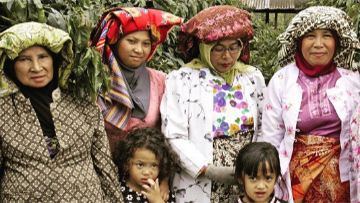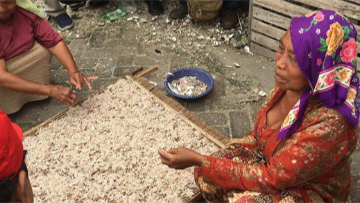Acceptance: Crucial for ending discrimination against Timor-Leste’s 2SLGBTQI+ community

Follow:
Timor-Leste is learning to embrace its 2SLGBTQI+ community.

When it comes to championing 2SLGBTQI+ rights, Timor-Leste is a leader in Southeast Asia.
In 2017, Timor-Leste’s Prime Minster Rui Maria de Araújo became the first Southeast Asian leader to publicly denounce discrimination against 2SLGBTQI+ individuals. Timor-Leste’s legal code does not criminalize sex between consenting same-sex adults and protects against discrimination based on gender or sexual orientation. The country even sponsored the 2011 United Nations Human Rights Council Joint Statement on Ending Acts of Violence and Related Human Rights Violations Based on Sexual Orientation and Gender Identity.
While these changes mark important political advancements for the 2SLGBTQI+ community, there’s still much more to be done to change societal norms and stereotypes.
Many 2SLGBTQI+ Timorese suffer from violence and discrimination, often at the hands of their own family. Many keep their true sexual orientation or gender identity hidden, as those who openly identify as 2SLGBTQI+ often face family rejection and physical, verbal and sexual violence.
Rejected from society, 2SLGBTQI+ persons lack protection, support and access to opportunities in their community.
But there is hope. Often times, hateful sentiments are fostered by a lack of understanding rather than deeply held beliefs. And the Timorese’ strong sense of family can help overcome discrimination.
Since 2018, the Embassy of Canada to Indonesia, responsible for Canada’s work in Timor-Leste, has placed a special emphasis on working with local activists and organizations to build a more inclusive, accepting society for 2SLGBTQI+ individuals.
Encouraging family acceptance
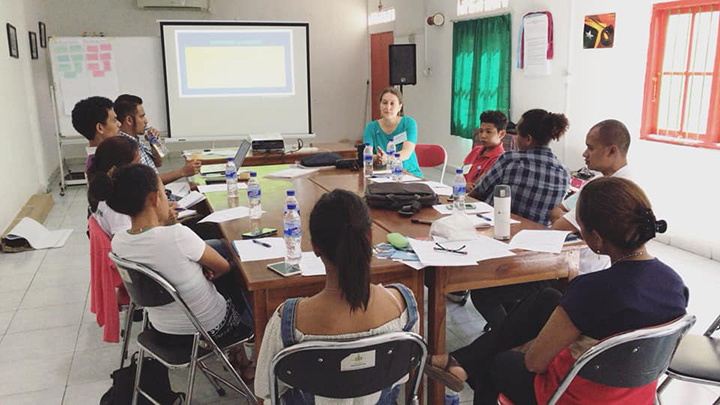
Through the Canada Fund for Local Initiatives (CFLI), the Embassy of Canada was proud to support Timorese 2SLGBTQI+ activist, Natalino Soares Ornai Guterres, and his organization, Hatutan Youth Network, to spread the message of acceptance to rural communities across Timor-Leste.
Families play an important role in helping 2SLGBTQI+ persons, especially children and youth achieve their full potential. Exclusion by family members can have devastating consequences.
With the goal of fighting discrimination and violence, leaders from Hatutan Youth Network, partner organizations and 2SLGBTQI+ activists visited 12 communities across the country to educate families about what it means to be 2SLGBTQI+ and the importance of love and acceptance.
“This advocacy is carried out with the aim of raising public awareness, especially among local leaders, on how to address various stigma, discrimination and violence against members of the 2SLGBTQI+ community.”
A powerful documentary, produced by the Hatutan Youth Network, launched the community visits. Participants heard first-hand experiences from 2SLGBTQI+ Timorese, which led to conversions and questions among community leaders, partner organizations and youth volunteers about inclusion and diversity.
“Being here, we feel regret because in the past we were unaware of how we had discriminated against our own friends.”
Around 20 to 40 local chiefs, municipal representatives, youth leaders, community leaders and ordinary citizens attend each session.
Many community members were initially shocked by the discussion, but by the end, learned how to be allies to the 2SLGBTQI+ community.
“Next time I see my friends being rude to 2SLGBTQI+ members, I will be ready to defend them.”
Representing Timor-Leste’s 2SLGBTQI+ community on the world stage
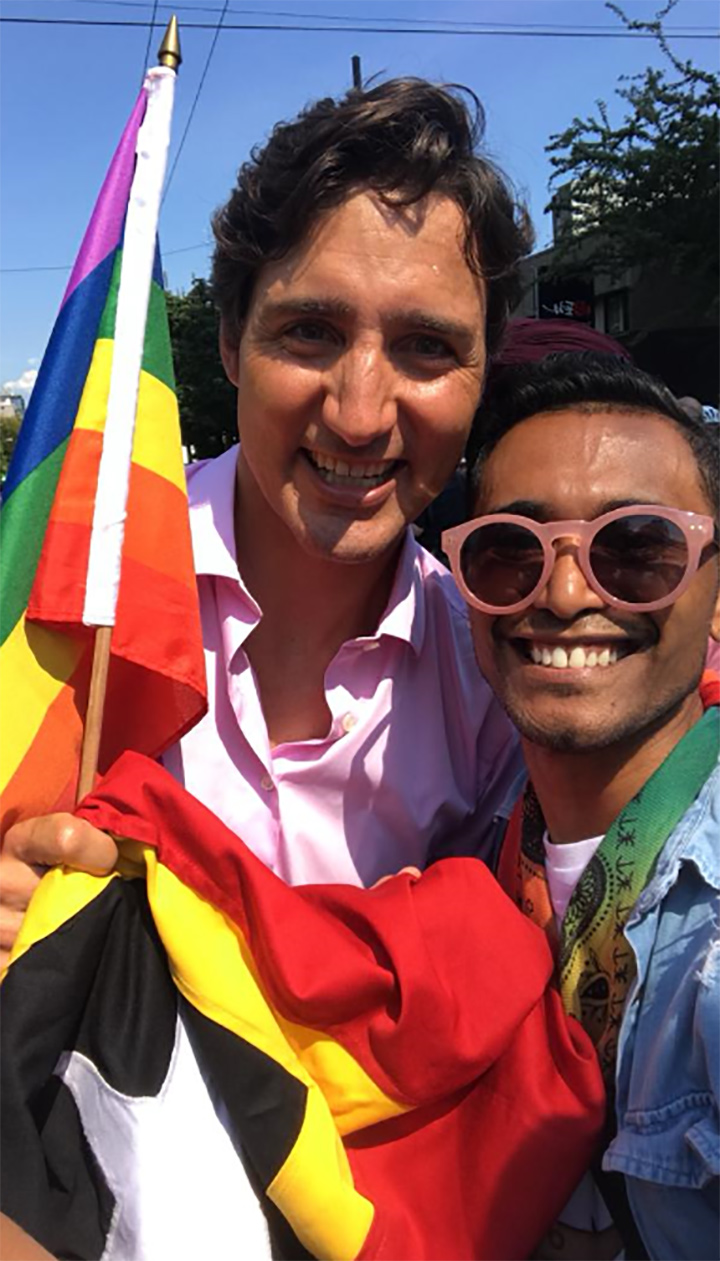
Through the CFLI, the Embassy also sent Natalino to the Equal Rights Coalition Global Conference in Vancouver.
The Equal Rights Coalition is the first intergovernmental network dedicated to promoting and protecting the human rights of 2SLGBTQI+ persons around the world. More than 30 countries have joined the coalition since its launch in 2016; Canada was a founding member.
The Global Conference brings together countries, organizations and advocates to learn, build networks and establish norms to help advance 2SLGBTQI+ rights and inclusive development.
This was the first time Timor-Leste has been represented at the Equal Rights Coalition.
Natalino even marched with Prime Minister Trudeau in the Vancouver Pride Parade that was held the same week.
“It was an incredible experience to learn that we are not alone in this fight for acceptance and inclusion. It was also great to see that our work has been recognized globally and that Timor-Leste has served as a beacon of hope in the region.”
Love is love: marching with pride
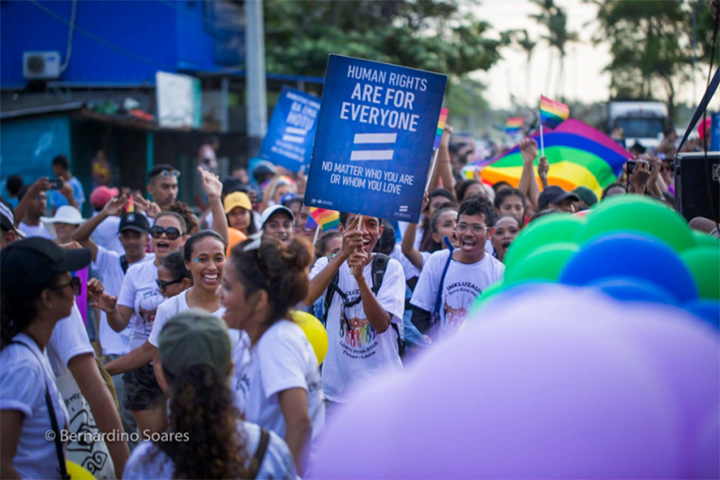
Pride parades are another important tool for fostering inclusion, as they encourage 2SLGBTQI+ persons to embrace and celebrate their identity, while raising awareness about different gender and sexual identities among non-2SLGBTQI+ communities.
In July 2018, an amazing 1,500 people flocked to the streets of Timor-Leste’s capital wearing their pride gear and waving rainbow flags. That’s 3 times the amount of people that attended the first annual pride parade.
The Embassy was proud to partner with local allies to help organize the country’s second annual pride parade and looks forward to supporting the 2019 parade.
“Visibility is important. Many 2SLGBTQI+ persons get bullied, threatened, harassed, so it’s meaningful for them to go out on the street and feel safe, proud to be themselves.”
Building a world where no one is left behind
Canada is proud to work together with Natalino and other local partners to build a world where no one is left behind.
As stated in the Canadian Charter of Rights and Freedoms, Canada believes that no one should be subjected to discrimination or violence based on their sexual orientation, gender identity or sex characteristics. The human rights of all persons are universal and indivisible, including the human rights of 2SLGBTQI+ persons.
This issue is especially close to Canada’s heart, as 2019 marks 50 years since the decriminalization of same sex marriages in Canada. The Canadian Embassy will continue to work with Natalino Guterres and other 2SLGBTQI+ activists to protect the human rights and fundamental freedoms of 2SLGBTQI+ persons in Timor-Leste.
After all, building a peaceful world is only possible when allare free from discrimination.
Related Links
External links
- Date modified:
